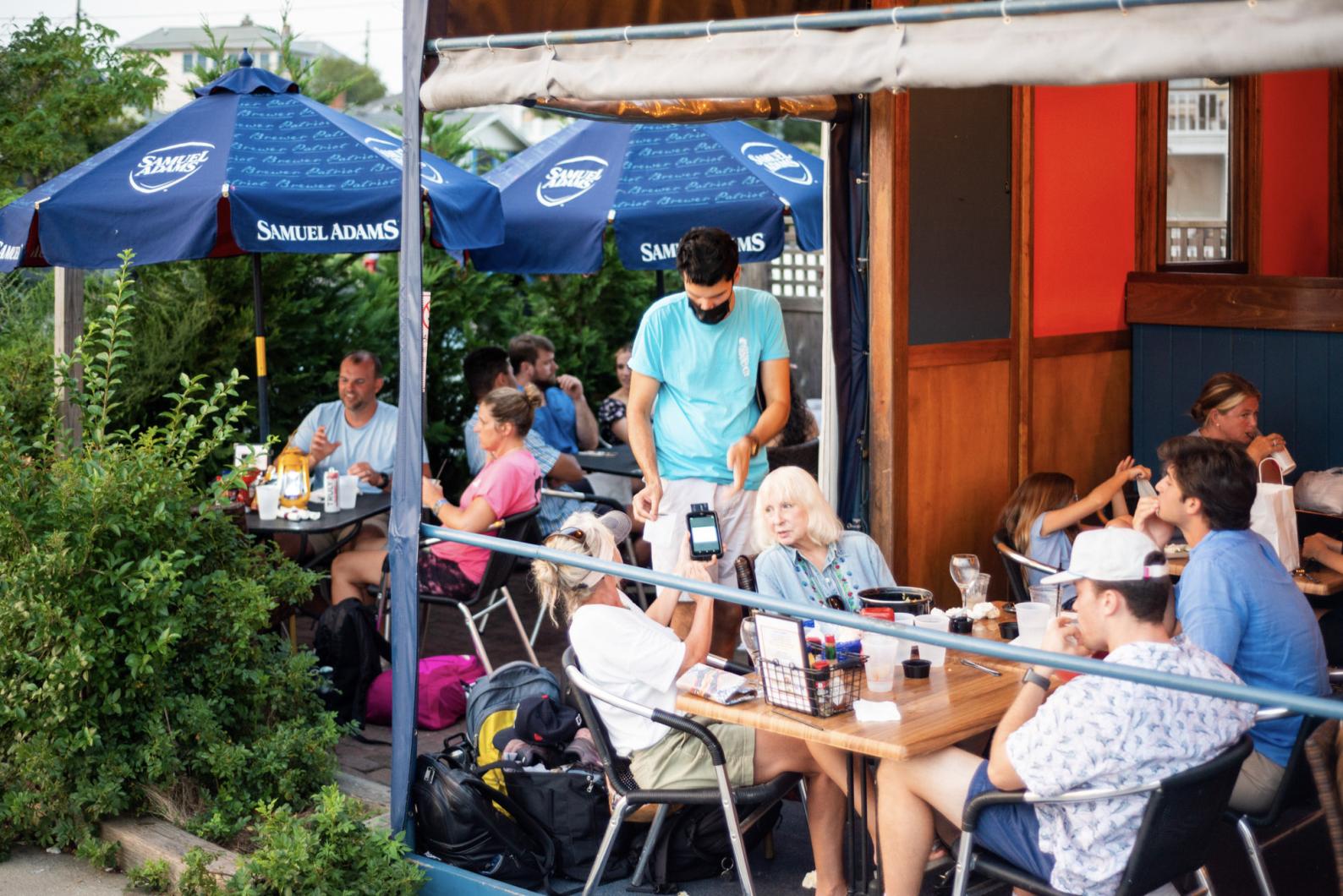The nightlife hotspot of Martha’s Vineyard may soon close a little earlier.
The Oak Bluffs select board this week debated changing the town’s last call, along with a host of other amendments to the town’s alcohol rules.
Oak Bluffs, which boasts the largest nightlife scene on the Island, has seen thirsty revelers rush over from other towns after their restaurants and bars close. The board is concerned about this “race from Edgartown to Oak Bluffs,” as board member Jason Balboni called it, and the issues it causes downtown.
“Everyone’s trying to get in last minute,” said Mr. Balboni. “It puts a strain on the businesses and our law enforcement and safety personnel.”
Last call in Edgartown is 12:30 a.m. and patrons need to be out by 1 a.m. In Oak Bluffs last call is at 1 a.m. and bars need to close by 1:30 a.m. That extra hour allows people to keep drinking from one town to the next.
That hour also happens to be during an Oak Bluffs Police Department shift change, causing extra stress on an already overburdened force, said police Lt. Nicholas Curelli.
“I think that our last call should be the same as Edgartown’s,” he said. “Later closing only creates more intoxication…It also creates more noise and disorder and not to mention a bigger mess of trash.”
The last call discussion is one of several potential changes to how alcohol and liquor licenses are handled in Oak Bluffs. The town has been thinking about a ban on the sale of “nip” alcohol bottles and on Tuesday the board talked about the enforcement of its seasonal licenses.
Businesses have the option to apply for a seasonal license, which requires them to be open from April 1 to Dec. 31, or an annual license. Both licenses cost the same. Many seasonal businesses, though, close before Dec. 31.
The select board plans to work on clarifying the liquor license policy and last call at its next meeting at Feb. 28. The town will invite all liquor license holders to attend the meeting and share their thoughts.
The board also considered several changes to other policies, including one on town-flown flags. Board member Emma Green-Beach introduced potential changes that would allow the town to fly flags that aren't federally recognized at one flag pole in town – likely the one at Ocean Park.
Under the draft policy, Ms. Green-Beach explained that the Juneteenth and Pride flags are examples of socially, but not federally, recognized flags that could promote inclusivity. Those flags could be flown between six to 30 days.
The four other select board members were wary. They insisted that they are in support of what both flags represent, but flying them could ultimately promote divisiveness and lead to other quagmires.
All members agreed to table the discussion until adjustments to the policy have been made.







Comments (17)
Comments
Comment policy »